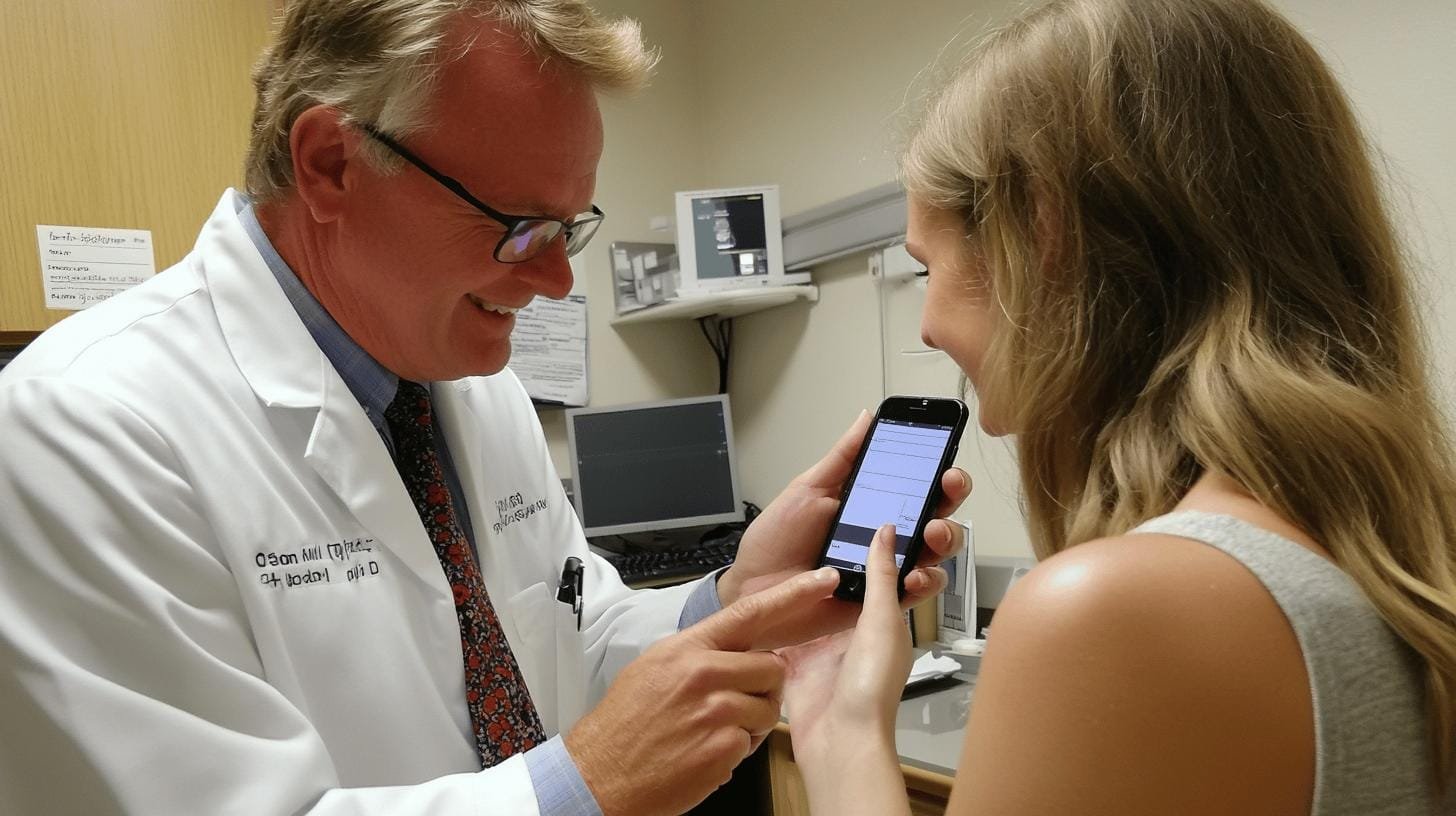
Emerging Approaches Redefining Craft-Focused Customer Experiences
Craft-focused small businesses have always relied on care, precision, and sourcing to stand out. What’s changing now is how those values are shown, not just

Ever wondered if your jittery hands and pounding heart after a cup of coffee might be a sign of something more than caffeine playing its usual tricks? Understanding and identifying true allergic reactions to caffeine can be life-changing for some. While some might simply experience headaches or slight discomfort, others could face severe symptoms like hives or even anaphylaxis. This article delves into the distinctions between caffeine allergies and sensitivities, guiding you through the intricacies of taking an allergic to caffeine test, diagnosis and management, and helping you determine whether it’s time to consider a caffeine allergy test.
Caffeine allergies are rare but can show a variety of symptoms that range from mild to severe. Common indicators include itchiness, swelling, and hives. Severe cases might lead to anaphylaxis, which is life-threatening. Symptoms here include trouble breathing, a fast heartbeat, and swelling in the face, lips, or throat. These reactions occur because the immune system mistakenly targets caffeine as harmful. Immediate medical care is essential for such severe cases to avoid complications.
Sensitivity to caffeine is different from an allergy and is more common. Sensitivity symptoms include jitteriness, headaches, and diarrhea. Unlike an allergy, sensitivity is about how the body processes caffeine, often influenced by genetic factors like the CYP1A2 enzyme. This enzyme is crucial for breaking down caffeine. If you are a slow metabolizer, you may feel stronger effects from caffeine, leading to sensitivity symptoms.
Recognizing whether you have a caffeine allergy or sensitivity is important for correct diagnosis and management. Misdiagnosis can result in wrong treatments and ongoing discomfort. Awareness of these symptoms helps both individuals and healthcare providers distinguish between allergies and sensitivities, ensuring proper lifestyle changes and treatment plans. Understanding these differences can greatly enhance life quality by reducing exposure to caffeine and its adverse effects.

Diagnosing caffeine allergies and sensitivities accurately is vital for effective management. Mistakes in identifying these conditions can lead to ineffective treatments and ongoing discomfort. For caffeine allergies, allergists typically conduct tests. Commonly, skin prick tests are used, where caffeine is applied to the skin to check for reactions like redness or swelling. Blood tests can also measure the immune response to caffeine by detecting specific antibodies. These tests help distinguish true allergies from other conditions with similar symptoms.
Diagnosing caffeine sensitivity is more challenging as it relies on symptom observation rather than direct testing. Sensitivity isn’t immune-related but a problem with caffeine metabolism. Often, an elimination diet is used, where caffeine is removed from the diet to see how symptoms change. This method requires careful observation to identify patterns.
For reliable diagnosis and management, consulting healthcare professionals is crucial. They offer tailored advice and testing options, ensuring individuals clearly understand their condition. This expert guidance aids in distinguishing between allergy, sensitivity, or intolerance, allowing for appropriate lifestyle changes and treatment strategies to reduce caffeine-related adverse effects.
Avoiding caffeine is key to treating caffeine allergies. The immune response to caffeine means completely eliminating it from your diet to prevent reactions. This includes not only obvious sources like coffee and tea but also hidden ones like sodas, energy drinks, and chocolate. Vigilance in reading labels and understanding ingredients is essential for those allergic to caffeine.
Medications are important for managing allergy symptoms. Over-the-counter antihistamines can relieve itchiness and reduce swelling in mild reactions. In severe cases, such as anaphylaxis, immediate treatment with epinephrine is necessary. Anaphylaxis symptoms, like trouble breathing and rapid heartbeat, need prompt epinephrine injection. People with severe allergies often carry an EpiPen or similar device for emergencies.
Lifestyle changes are crucial for managing caffeine allergies and sensitivities. Educating oneself on caffeine sources and diligently avoiding them can significantly cut down allergy risks. Consulting healthcare professionals ensures individuals get tailored advice. These consultations can clarify managing symptoms, exploring safe alternatives, and implementing effective strategies to maintain well-being without caffeine risks.

Genetics play a significant role in caffeine sensitivity. Variations in the CYP1A2 enzyme, which helps metabolize caffeine, determine if you’re a slow or fast metabolizer. These differences affect how caffeine is processed, leading to varied sensitivity levels.
Lifestyle and personal experiences also impact caffeine sensitivity. Regular caffeine use can change tolerance levels—some people may need more caffeine over time to feel the effects. Lesser caffeine users may experience increased sensitivity, shown by a faster heartbeat or jitteriness. Stress, diet, and health can also impact how caffeine affects the body. Personal stories show varied reactions, highlighting the importance of understanding both genetic and lifestyle factors in managing caffeine sensitivity.
Avoiding caffeine daily can be tough, especially for regular users. Caffeine is in many drinks and some medicines. Sensitivity sufferers must be cautious. Eliminating caffeine can cause withdrawal symptoms like headaches, fatigue, and irritability. Symptoms start within 12 to 24 hours of stopping caffeine and can last up to a week. Gradually reducing caffeine instead of stopping suddenly might be easier. Individuals should be patient and notice their body’s response during this period, as it can vary.
Choosing the right alternatives and making lifestyle changes help manage caffeine sensitivity. Non-caffeinated drinks like herbal teas offer a good alternative, removing caffeine risk. Improving sleep hygiene, exercising regularly, and managing stress also boost energy and alertness. These changes promote overall wellness. Personal stories emphasize finding individual solutions that fit one’s lifestyle, highlighting the need for flexibility and perseverance.
Identifying and managing caffeine-related reactions is vital for well-being. Distinguishing symptoms of allergies like swelling and hives from sensitivity, which can cause jitteriness and diarrhea, helps determine the appropriate treatment approach. Accurate diagnosis is essential, involving tests such as skin prick tests for allergies and elimination diets for sensitivities. Genetic factors also influence sensitivity, affecting how individuals metabolize caffeine. Effective management strategies include avoiding caffeine, using antihistamines, and exploring alternative beverages. Consulting healthcare professionals is recommended for personalized advice. Taking an allergic to caffeine test can provide clarity and guide lifestyle choices, promoting a balanced life.
Caffeine intolerance symptoms may include jitteriness, anxiety, headaches, and gastrointestinal distress like diarrhea. These reactions vary and can be influenced by individual genetic factors.
A person may become sensitive to caffeine due to changes in metabolism, age, or increased exposure. It’s crucial to monitor any new symptoms and adjust caffeine intake accordingly.
Allergic reactions to caffeine can cause itchiness, swelling, hives, or, in severe cases, anaphylaxis. Allergy testing by an allergist through skin prick or blood tests can confirm allergies.
An individual may react to other compounds in coffee unrelated to caffeine. Testing can help determine the specific component causing the allergy.
Treatment primarily involves avoiding caffeine. Antihistamines can manage symptoms like itching or swelling, while severe reactions might require an epinephrine injection.

Craft-focused small businesses have always relied on care, precision, and sourcing to stand out. What’s changing now is how those values are shown, not just

How can brands create a more balanced and memorable customer experience by blending artisanal product quality with thoughtful everyday rituals that keep people coming back?

Independent coffee shops have always been about more than caffeine—they’re hubs of creativity, connection, and care. As café culture continues to evolve, new trends are

Introduction Independent cafes win when they feel like the neighborhood’s living room and operate with the discipline of a great kitchen. Below is a quick

Discover how top specialty coffee brands create lasting loyalty through storytelling, sourcing, and community connection. Real tips from 6 industry experts.

Discover the ultimate showdown between two beloved coffee brewing methods: the French press and Chemex. Explore how each technique caters to distinct palates, with the French press delivering bold flavors and the Chemex presenting a bright, clean taste.

Unlock the secrets to brewing the perfect cup of coffee with our comprehensive guide on using a coffee scale. Discover how precise measurements enhance flavor and consistency while eliminating bitterness.

Discover how water temperature plays a vital role in brewing the perfect cup of coffee. This article delves into the ideal temperature range of 195°F to 205°F for optimal flavor extraction, enhancing the enjoyment of high-quality beans.

Discover the world of curated specialty coffee bundles, perfect for enthusiasts seeking quality and craftsmanship. This article explores the benefits of ethically sourced, small-batch beans from brands like Equipoise Coffee, offering diverse flavor profiles that elevate your brewing experience.